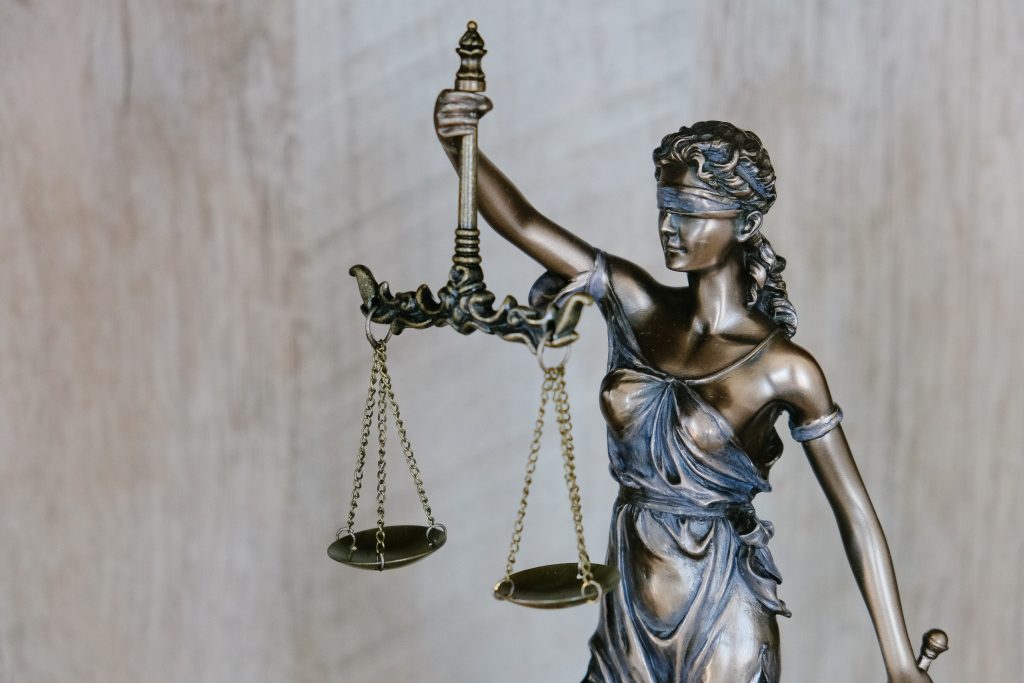Crafting compelling content for a criminal defense attorney’s website blog requires a deep understanding of the target audience—individuals facing criminal charges in Utah. By researching their needs and concerns, you can create informative posts that explain complex legal concepts in a clear and accessible manner. Showcase your expertise and experience through engaging case studies and real-life scenarios, instilling confidence and setting your firm apart. Address common legal concerns directly, providing reassurance and guidance. Incorporate personal stories to humanize your practice and create emotional connections. Optimize your content for search engines by conducting keyword research and incorporating keywords naturally. Every blog post should include a clear call-to-action, prompting potential clients to take the next step and seek assistance promptly. With the Criminal Defense Legal Expert, you can leverage these strategies to establish your online presence and attract clients in need of strong legal representation.

This image is property of images.unsplash.com.
Understanding Criminal Defense
Criminal defense is a legal practice that focuses on representing individuals who are accused of criminal offenses. It involves ensuring that the rights of the accused are protected and advocating for their best interests throughout the legal process. This article discusses the importance of criminal defense, the different types of criminal defense, the qualifications and experience required to be a criminal defense attorney, as well as the roles and responsibilities involved in this field.
What is Criminal Defense?
Criminal defense refers to the legal representation provided to individuals who have been charged with criminal offenses. The main objective of criminal defense is to ensure that the accused receives a fair trial and that their constitutional rights are upheld. Criminal defense attorneys work diligently to protect their clients from potential consequences such as imprisonment, fines, and other penalties.
Importance of Criminal Defense
Criminal defense plays a vital role in the legal system by safeguarding the principle of “innocent until proven guilty.” It serves as a check against undue power and ensures that individuals who are accused of crimes are treated fairly. Criminal defense attorneys serve as advocates for their clients, ensuring that they are afforded their rights, providing legal guidance and representation, and working towards securing the most favorable outcome possible.
Types of Criminal Defense
There are various types of criminal defense strategies that legal experts employ to defend their clients. Some common types of criminal defense include:
-
Substantive Defenses: These defenses challenge the factual elements or legal elements of the crime. Substantive defenses can include self-defense, duress, intoxication, and mistake of fact.
-
Procedural Defenses: Procedural defenses focus on the legality of the arrest or the evidence collection process. These defenses often include arguing that evidence was obtained unlawfully or that the accused was not read their Miranda rights.
-
Affirmative Defenses: Affirmative defenses acknowledge that the accused committed the alleged crime but assert that there are justifiable reasons or circumstances. Examples of affirmative defenses include insanity, necessity, and consent.
-
Alibi Defense: An alibi defense involves presenting evidence that the accused was not present at the scene of the crime when it occurred.
-
Insanity Defense: The insanity defense asserts that the accused should not be held criminally responsible for their actions due to a mental disorder or incapacity.
-
Mistaken Identity Defense: This defense strategy challenges the identification of the accused, arguing that they were not the person who committed the crime.
It is important to note that the type of defense strategy employed depends on the specific circumstances of each case and the expertise of the criminal defense attorney.
Qualifications and Experience
Criminal defense attorneys require a combination of educational background, professional certifications, and years of practice to effectively represent their clients. Clients seek legal experts who possess the necessary knowledge and skills to navigate the complexities of criminal law and provide competent legal representation.
Educational Background
Criminal defense attorneys must hold a Juris Doctor (J.D.) degree from an accredited law school. This comprehensive legal education equips them with the foundational knowledge of constitutional law, criminal law, evidence, and procedure.
Professional Certifications
Attaining professional certifications demonstrates a commitment to excellence and an advanced level of expertise in the field. Criminal defense attorneys can obtain certifications from organizations such as the National Board of Legal Specialty Certification (NBLSC) or state-specific bar associations.
Years of Practice
Experience is a crucial factor in becoming a competent criminal defense legal expert. The complexities of criminal law require attorneys to have practical experience representing clients in various criminal cases. By handling a diverse range of cases over the years, attorneys develop the skills and strategies necessary for effective defense.
Roles and Responsibilities
Criminal defense attorneys have several essential roles and responsibilities when representing their clients. These range from client representation to courtroom advocacy, and each plays a critical part in securing the best possible outcome for the accused.
Client Representation
One of the primary responsibilities of a criminal defense attorney is to provide legal representation to their clients. This involves understanding their client’s situation, conducting thorough case assessments, and working towards building a strong defense strategy.
Legal Counseling
Criminal defense attorneys provide legal advice and guidance to their clients throughout the legal process. They explain the charges against their clients, the potential consequences, and the available legal options. By providing knowledgeable counsel, they help clients make informed decisions about their case.
Negotiations and Plea Bargaining
Criminal defense attorneys often engage in negotiations with prosecutors to secure favorable outcomes for their clients. They may negotiate reduced charges or penalties through the process of plea bargaining. This requires skillful negotiation and a comprehensive understanding of the law and the circumstances of the case.
Courtroom Advocacy
When necessary, criminal defense attorneys advocate for their clients in the courtroom. They present arguments, cross-examine witnesses, and challenge the prosecution’s evidence. Through persuasive advocacy, they strive to convince judges or juries of their clients’ innocence or to obtain the best possible outcome for their clients.
Key Skills for Criminal Defense Legal Experts
To be a successful criminal defense legal expert, several key skills are crucial for effectively representing clients and navigating the complexities of criminal law.
Analytical Thinking
Criminal defense attorneys must possess strong analytical thinking skills to examine the facts and evidence of a case from multiple angles. They need to identify weaknesses in the prosecution’s case, evaluate potential defense strategies, and make strategic decisions based on their analysis.
Legal Research
A thorough understanding of the law is essential for criminal defense attorneys. They must be skilled at conducting legal research to interpret laws, statutes, and legal precedents relevant to their clients’ cases. Research allows attorneys to stay updated on the latest legal developments and utilize them to build a solid defense.
Effective Communication
Effective communication is vital for criminal defense attorneys to build rapport with their clients, understand their needs, and clearly explain legal concepts and procedures. Attorneys must also communicate persuasively in court, presenting arguments and cross-examining witnesses convincingly.
Negotiation Skills
Negotiation skills are crucial for criminal defense attorneys during plea bargaining and other negotiations with prosecutors. By persuasively advocating for their clients’ best interests, attorneys can negotiate reduced charges or penalties that are more favorable to their clients.

This image is property of images.unsplash.com.
Case Evaluation and Strategy
An essential aspect of criminal defense involves evaluating the case and devising a strategy to effectively defend the client. This includes several steps, from the initial assessment to collaborating with expert witnesses.
Intake and Initial Assessment
During the intake process, criminal defense attorneys gather information about their clients’ charges and the circumstances of the alleged offense. They assess the available evidence, identify potential legal issues, and determine the strengths and weaknesses of the case.
Investigation and Evidence Gathering
Criminal defense attorneys conduct investigations to gather additional evidence that supports their clients’ defense. This can involve interviewing witnesses, analyzing documents, and collaborating with investigators to uncover new information that can strengthen the defense strategy.
Developing Defense Strategy
Based on the evaluation of the case and the evidence gathered, criminal defense attorneys develop a defense strategy tailored to their clients’ specific circumstances. This strategy may involve challenging the prosecution’s evidence, presenting an alibi, or asserting a specific legal defense.
Expert Witness Collaboration
In some cases, criminal defense attorneys may consult with expert witnesses to strengthen the defense strategy. Expert witnesses, such as forensic experts or medical professionals, provide specialized knowledge and testify to demonstrate crucial aspects of the defense.
Defending Different Criminal Charges
Criminal defense attorneys handle a wide range of criminal charges, each requiring specific expertise and strategies. Some common types of criminal charges that defense attorneys defend against include:
Assault and Battery
Assault and battery charges involve the intentional infliction of harm or attempted harm to another person. Criminal defense attorneys carefully review the circumstances, evidence, and witness testimonies to build a defense strategy that challenges the prosecution’s case.
Drug Offenses
Drug offenses encompass various charges related to the possession, distribution, or manufacturing of illegal substances. Criminal defense attorneys scrutinize the evidence handling, law enforcement procedures, and constitutional violations to defend their clients’ rights and seek favorable outcomes.
White Collar Crimes
White collar crimes are typically non-violent offenses committed in business or professional settings, such as fraud, embezzlement, or insider trading. Criminal defense attorneys specializing in white collar crimes employ intricate investigative techniques and legal strategies to challenge the prosecution’s case.
Sexual Offenses
Sexual offenses involve crimes such as rape, sexual assault, or child exploitation. Criminal defense attorneys approach these cases with sensitivity while meticulously examining the evidence and challenging the prosecution’s arguments.
DUI/DWI Charges
Driving Under the Influence (DUI) or Driving While Intoxicated (DWI) charges require defense attorneys to analyze breathalyzer or blood test results, challenge the legality of the traffic stop, or question the accuracy of field sobriety tests. They aim to minimize the consequences and protect their clients’ driving privileges.

This image is property of images.unsplash.com.
Navigating the Legal System
Criminal defense attorneys must be well-versed in the legal system and understand the various procedures involved in their clients’ cases. This includes familiarity with court procedures, filing motions, pretrial proceedings, and the trial and appeals process.
Understanding Court Procedures
Criminal defense attorneys guide their clients through court procedures, ensuring they understand their rights, the charges against them, and the various stages of the legal process. They navigate the complexities of the court system, organize the necessary documentation, and prepare their clients for court appearances.
Filing Motions
Criminal defense attorneys have the responsibility of filing motions on behalf of their clients. These motions can include requests for evidence suppression, dismissal of charges, or changes to pretrial release conditions. Attorneys must have a comprehensive understanding of the applicable laws and rules of procedure to file effective motions.
Pretrial Proceedings
Pretrial proceedings involve hearings, conferences, and negotiations that occur prior to a trial. Criminal defense attorneys participate in these proceedings, advocating for their clients and pursuing favorable resolutions such as reduced charges or alternative sentencing options.
Trial and Appeals Process
During the trial, criminal defense attorneys represent their clients in presenting evidence, cross-examining witnesses, and delivering opening and closing statements. If a conviction occurs, defense attorneys can file appeals and present arguments to higher courts on behalf of their clients.
Building Strong Defense Cases
Building a strong defense case requires criminal defense attorneys to meticulously analyze the prosecution’s case, identify weaknesses, collect supporting evidence, and present solid arguments in court.
Analyzing Prosecution’s Case
Criminal defense attorneys critically examine the prosecution’s evidence, witness testimonies, and legal arguments to identify weaknesses and inconsistencies. They strategically challenge the credibility and admissibility of evidence and present counterarguments that cast doubt on the prosecution’s case.
Identifying Weaknesses
By thoroughly investigating and analyzing the evidence, criminal defense attorneys identify weaknesses that can be exploited in their clients’ favor. This can include errors in police investigation, violations of constitutional rights, or unreliable witness testimonies.
Collecting Supporting Evidence
Criminal defense attorneys gather additional evidence that supports their clients’ defense. This can involve conducting independent investigations, obtaining witness statements, or presenting expert testimony to challenge the prosecution’s version of events.
Presenting Solid Arguments
In the courtroom, criminal defense attorneys skillfully present solid arguments that undermine the prosecution’s case and establish reasonable doubt. They deliver persuasive opening and closing statements, cross-examine witnesses effectively, and present evidence that supports their defense strategy.
Client Communication and Empathy
Effective client communication and empathy are vital aspects of being a successful criminal defense attorney. By actively listening, managing client expectations, providing emotional support, and maintaining confidentiality, attorneys build trust and create a positive attorney-client relationship.
Active Listening
Criminal defense attorneys must actively listen to their clients, allowing them to express their concerns, fears, and questions. This enables attorneys to understand their clients’ perspectives and tailor their defense strategy to address their specific needs.
Managing Client Expectations
Criminal defense attorneys have a responsibility to manage their clients’ expectations realistically. By providing honest and transparent communication, attorneys ensure that their clients fully understand the potential outcomes and challenges of their case.
Providing Emotional Support
Facing criminal charges can be an emotionally taxing experience for clients. Criminal defense attorneys provide emotional support, reassurance, and guidance to help clients navigate the often-stressful legal process. Attorneys remain empathetic and understanding, acknowledging the emotional toll their clients may be experiencing.
Maintaining Confidentiality
Criminal defense attorneys uphold the duty of client confidentiality, ensuring that all client communications and information remain private and protected. This confidentiality fosters trust and allows clients to feel comfortable sharing sensitive information that may be crucial to their defense.
Working with Legal Team
Criminal defense attorneys often work collaboratively with various professionals to strengthen their clients’ cases. This includes collaboration with investigators, consultation with expert witnesses, coordination with paralegals, and effectively managing support staff.
Collaborating with Investigators
Criminal defense attorneys may work closely with investigators to gather additional evidence, locate witnesses, or support the defense strategy. Investigators provide crucial insights into the case, allowing attorneys to build a comprehensive defense.
Consulting with Expert Witnesses
Expert witnesses, such as forensic experts or medical professionals, provide specialized knowledge that can strengthen a defense case. Criminal defense attorneys consult with expert witnesses to obtain their professional opinions, review reports, and prepare for expert testimony during the trial.
Coordinating with Paralegals
Paralegals play a vital role in criminal defense cases by assisting attorneys with research, document preparation, court filings, and case management. Criminal defense attorneys coordinate with paralegals to ensure that all necessary tasks are completed efficiently and accurately.
Handling Support Staff
Criminal defense attorneys oversee support staff, including legal assistants and administrative staff, who assist with office management, client communications, document preparation, and other essential tasks. Efficiently managing support staff allows attorneys to focus on providing quality legal representation to their clients.
In conclusion, criminal defense legal experts play a critical role in protecting the rights of individuals accused of criminal offenses. By leveraging their qualifications, experience, and key skills, these legal professionals navigate the legal system, build strong defense cases, and provide essential guidance and representation to their clients. Understanding the complexities of criminal defense allows individuals facing criminal charges to make informed decisions and seek the assistance of competent legal experts.



